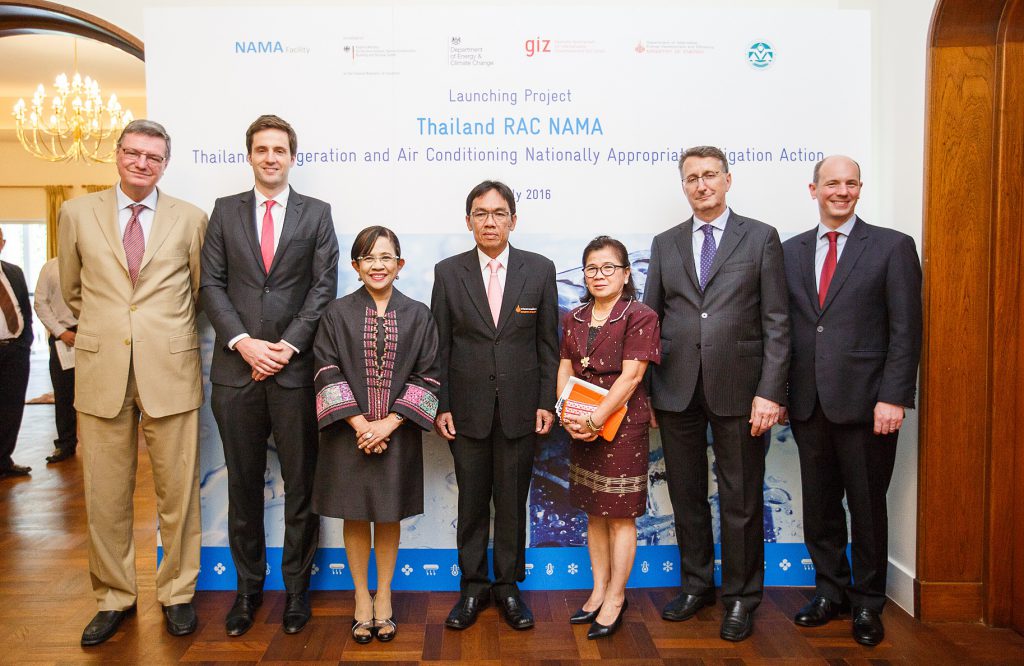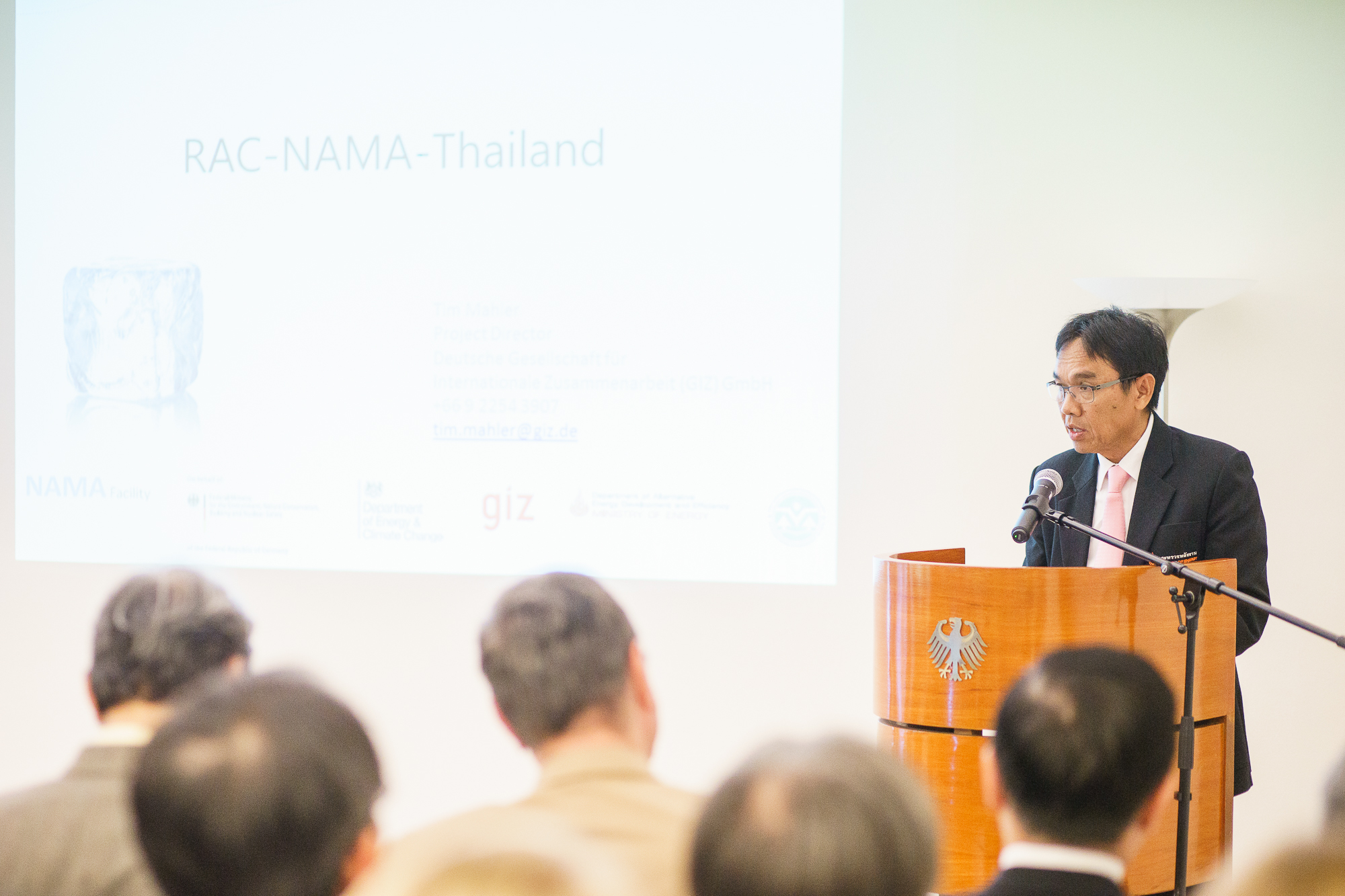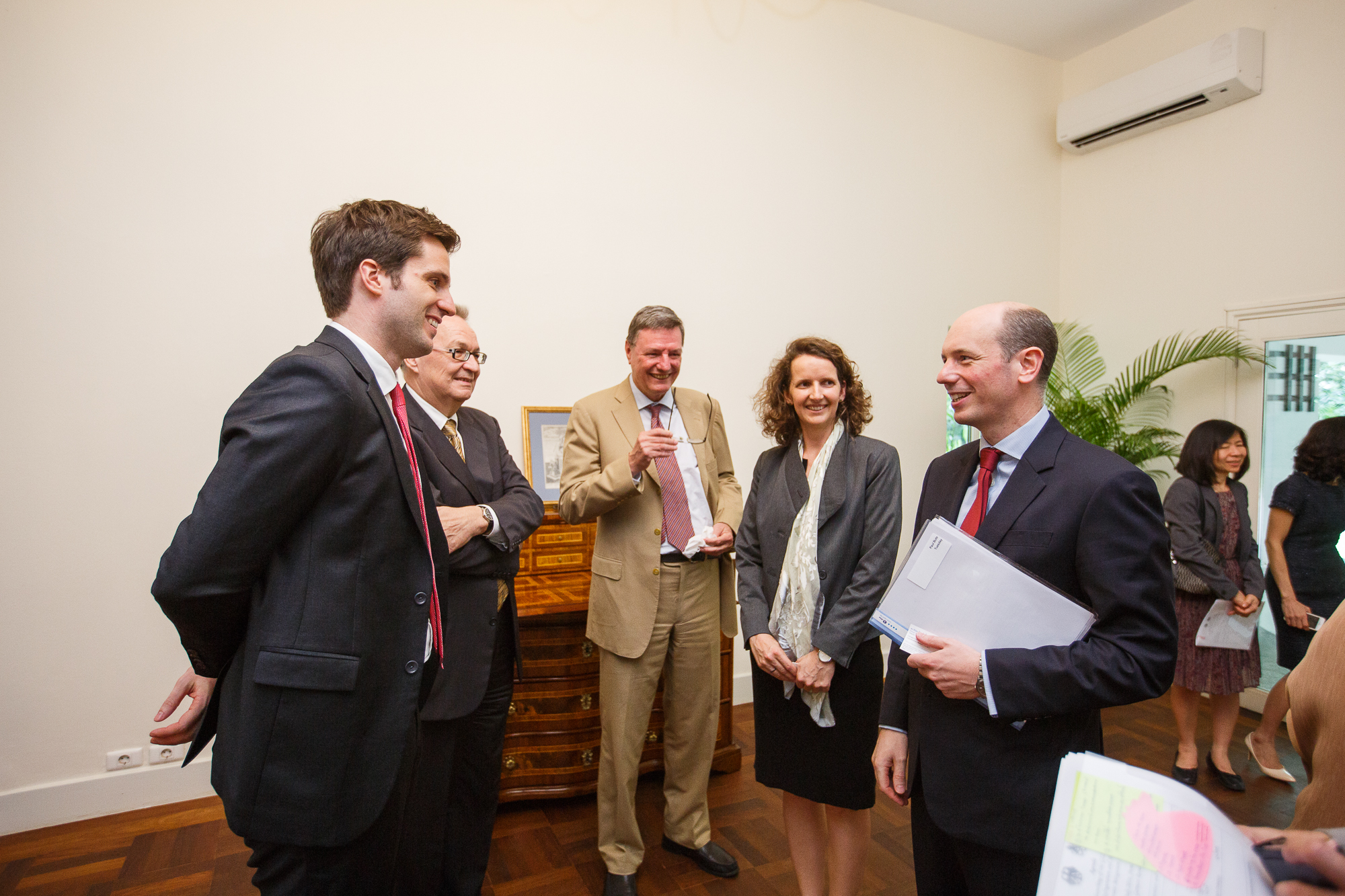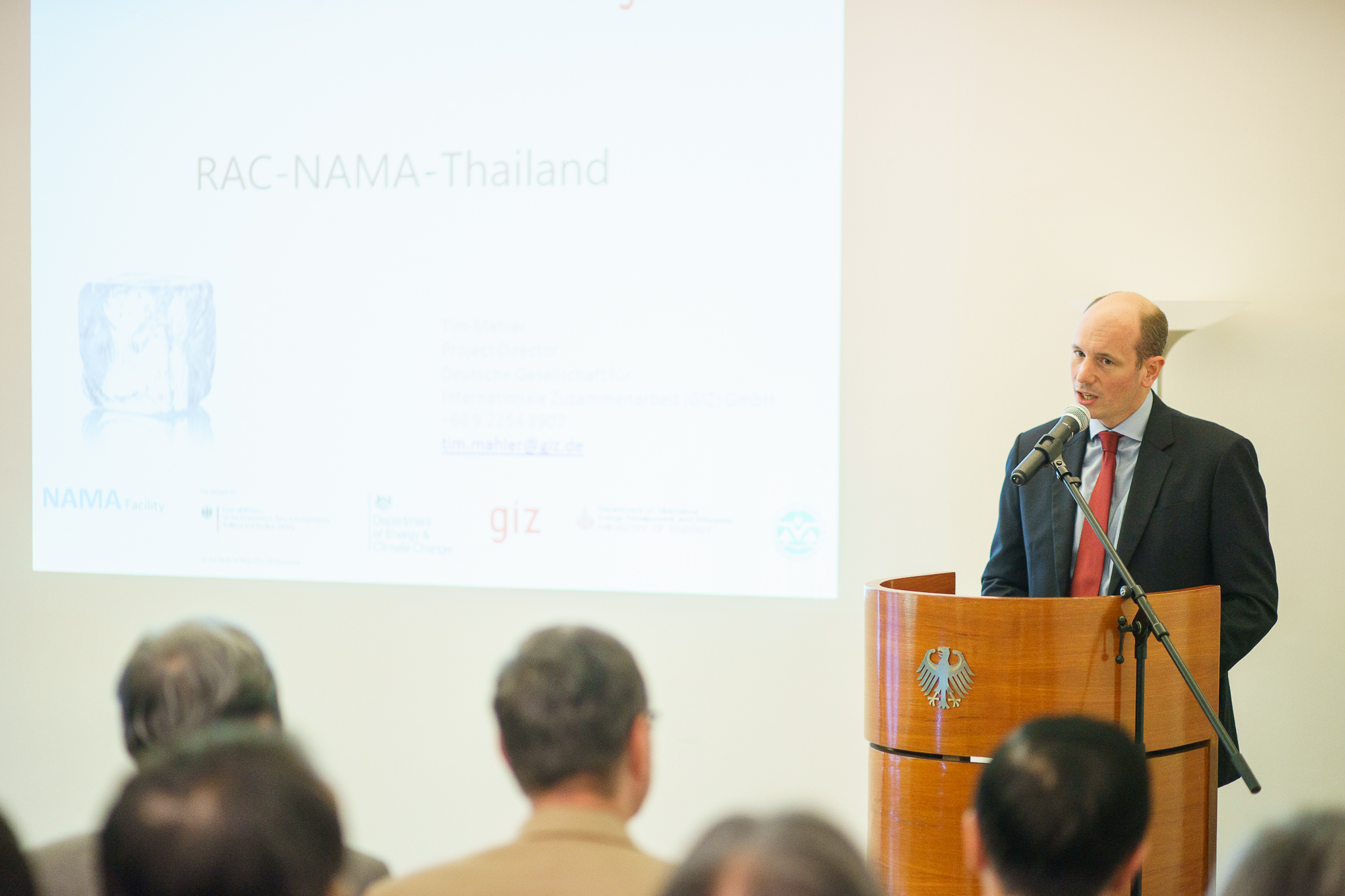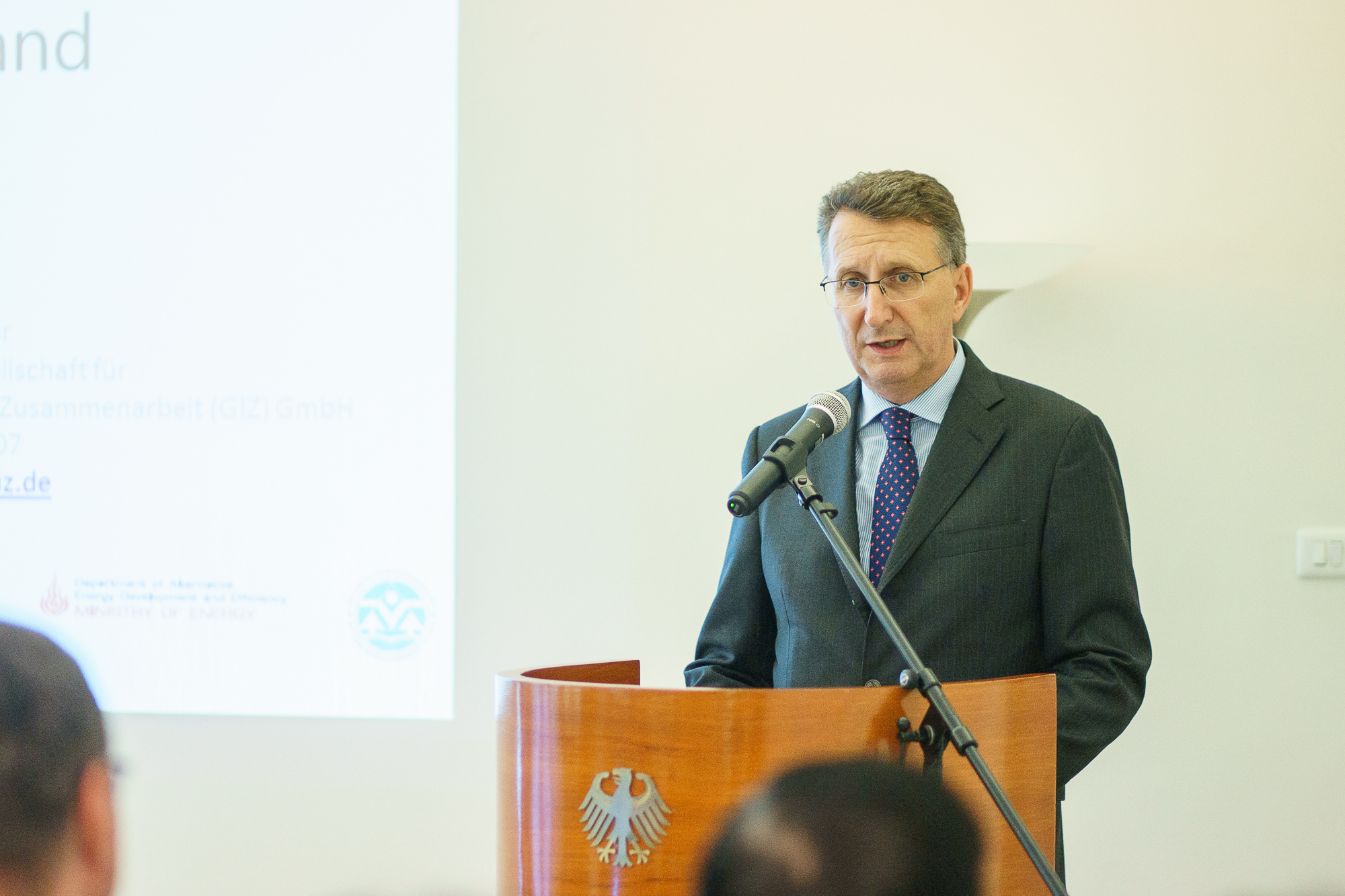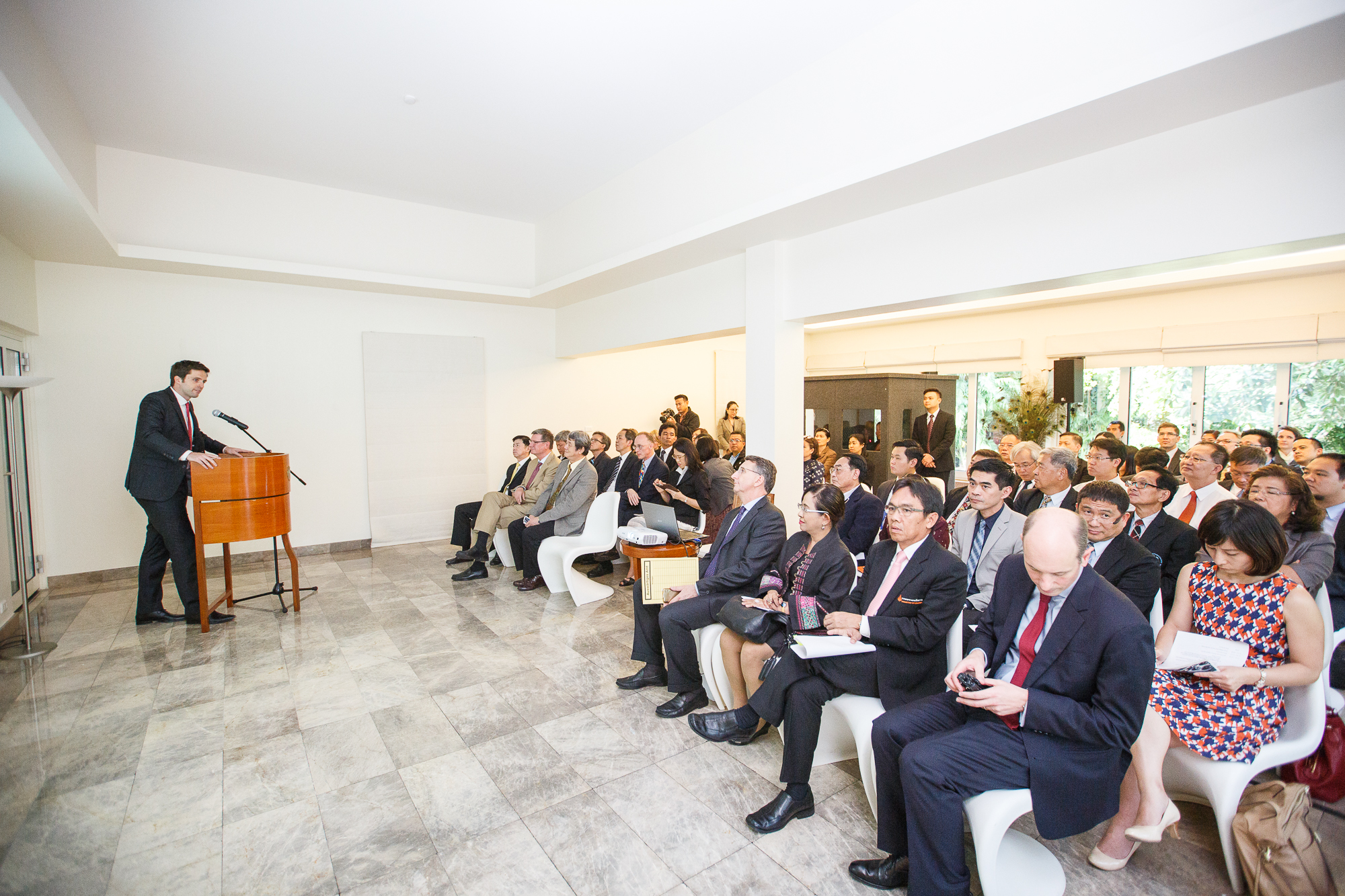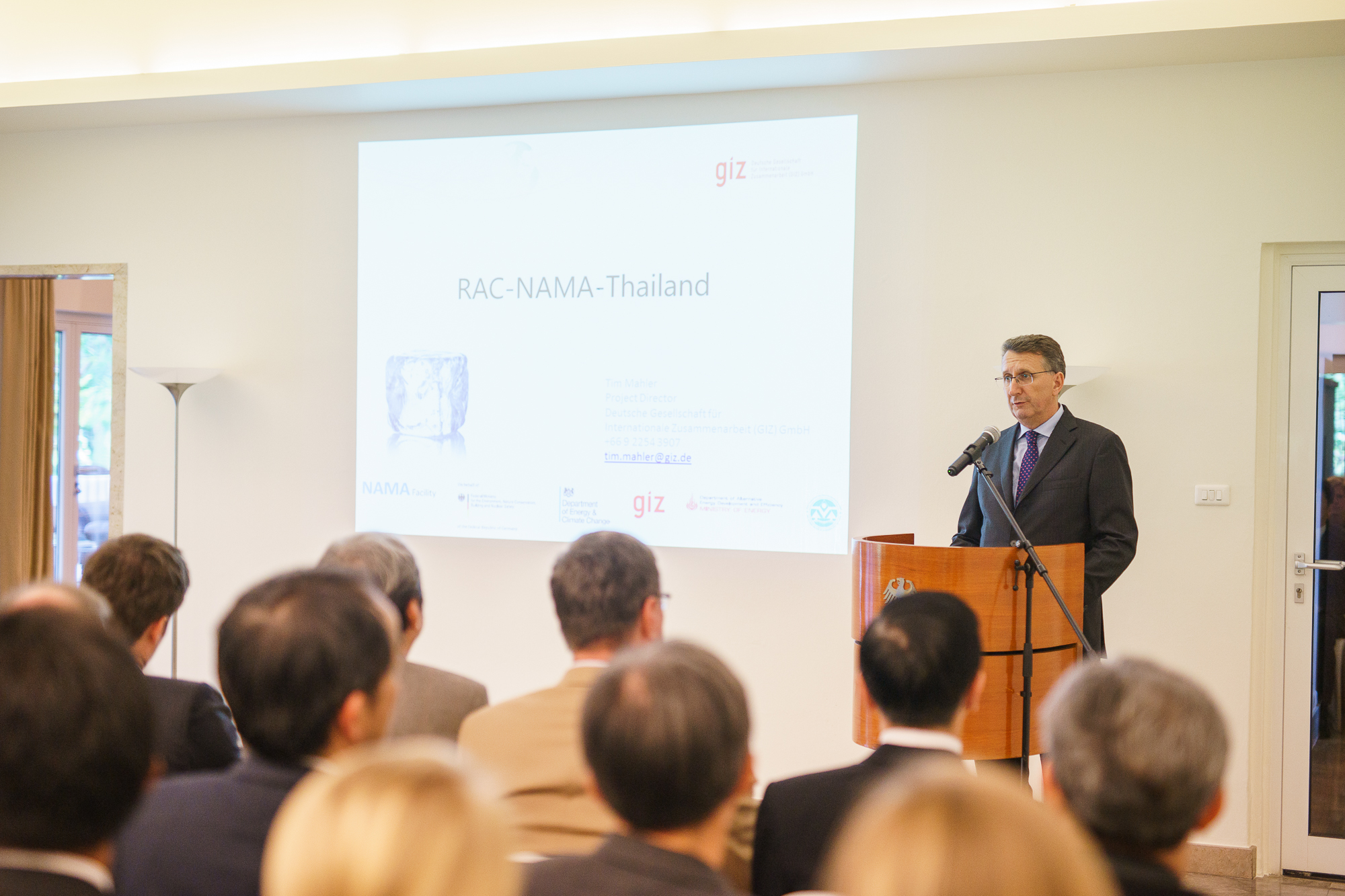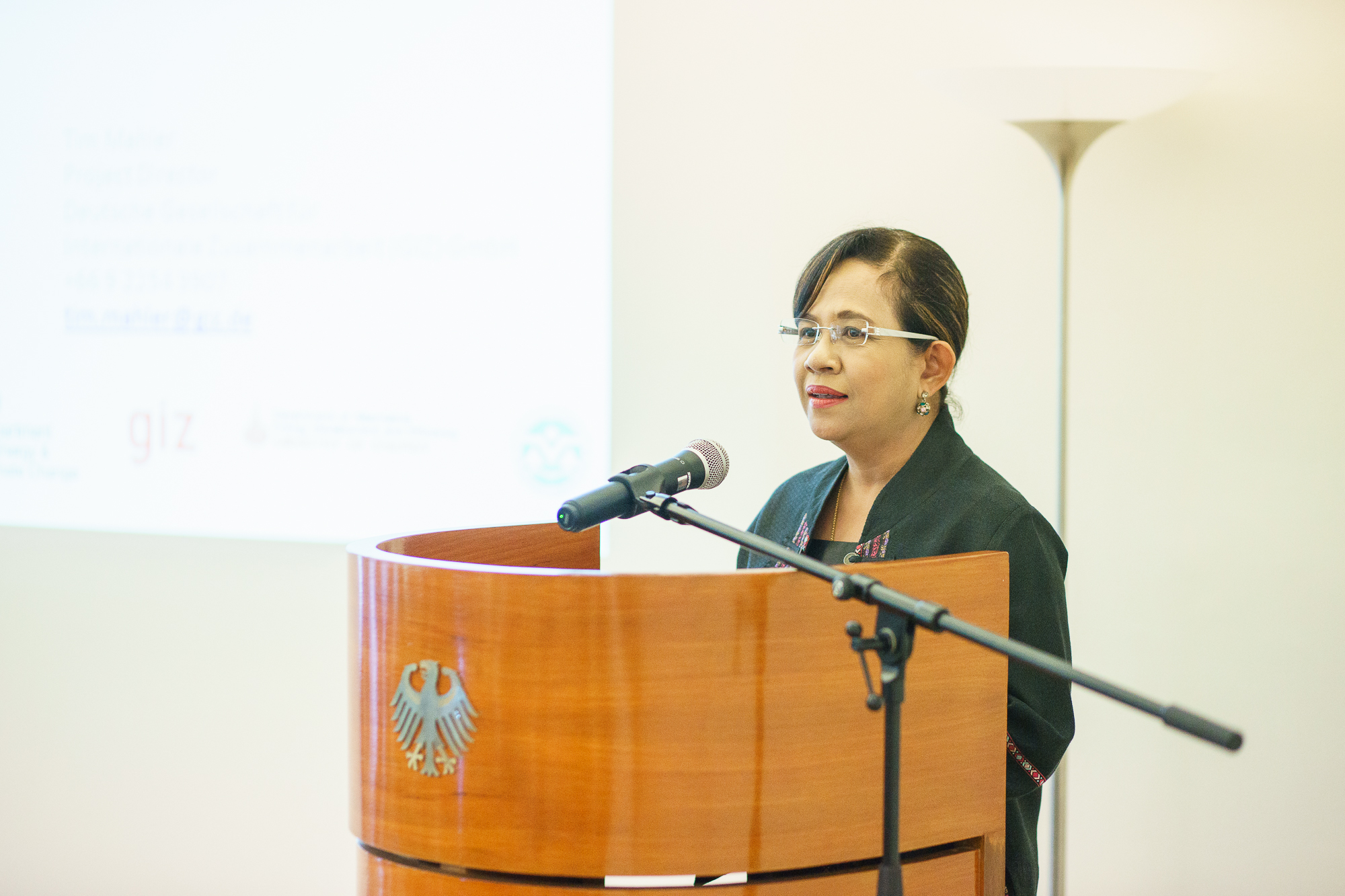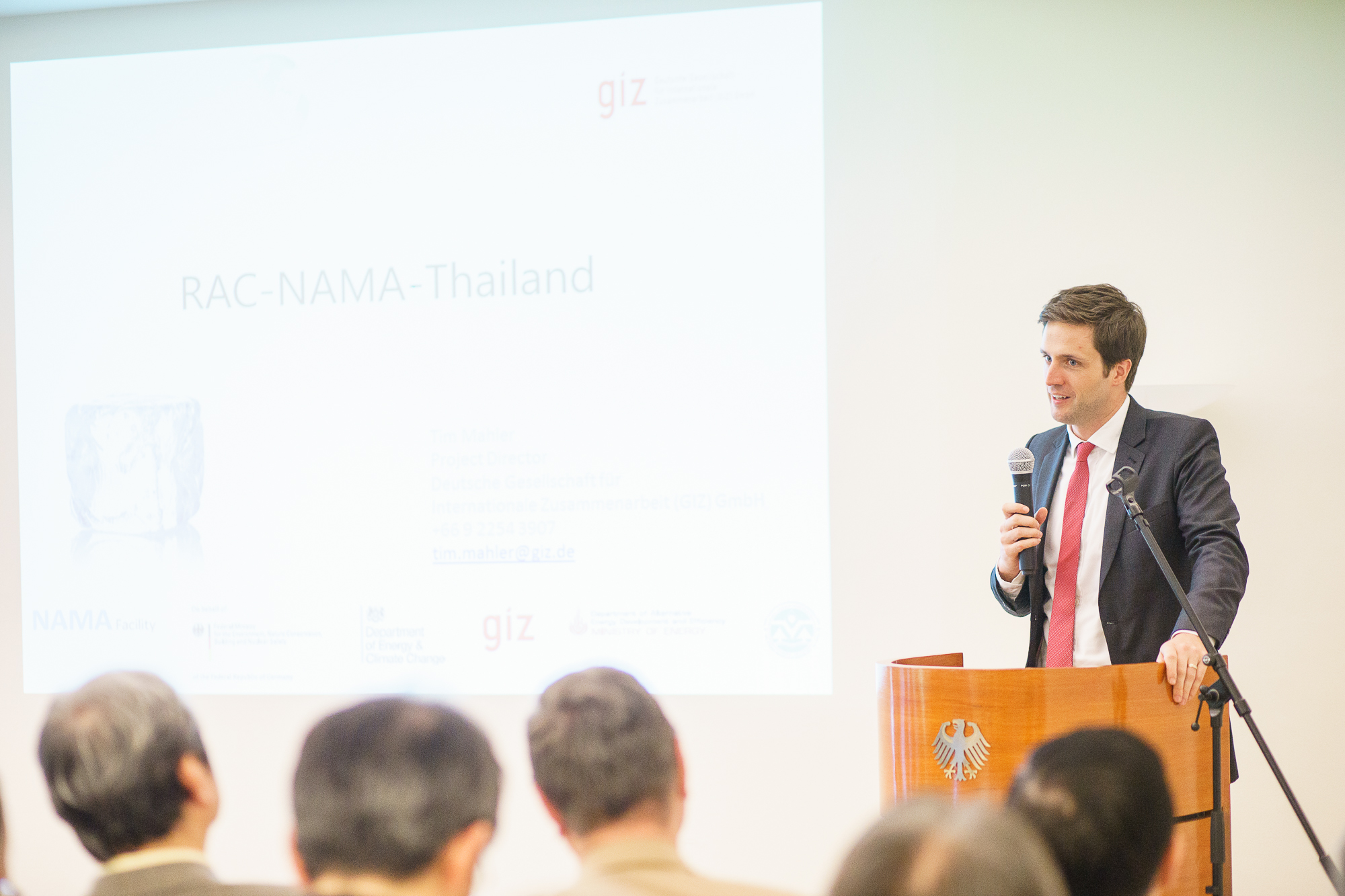From left to right:
Mr. Stefan Helming, Country director, GIZ Thailand,
Mr. Tim Mahler, Project Director of RAC NAMA, GIZ Thailand,
Dr. Asdaporn Krairapanond, Deputy Secretary General, Office of Natural Resources and Environment Policy and Planning (ONEP), Ministry of Natural Resources and Environment,
Mr. Thammayot Srichuai, Director General, Department of Alternative Energy Development and Efficiency (DEDE), Ministry of Energy,
Ms. Chirapaporn Laima, Director of Energy Forecast and Information Technology Center, Energy Policy and Planning Office (EPPO), Ministry of Energy,
Mr. Peter Prügel, The Ambassador of the Federal Republic of Germany and
Mr. Paul Bute, The Chargé d’Affaires a.i. of the British Embassy
Bangkok, 12 July 2016 – The Government of the Federal Republic of Germany and of the United Kingdom together with GIZ have launched a new project on “Thailand Refrigeration and Air Conditioning Nationally Appropriate Mitigation Action (RAC NAMA)”. By supporting climate-friendly and energy efficient cooling technologies, the project supports Thailand in reaching its energy saving as well as its climate targets. It supports the cooling industry in staying competitive and will bring international climate finance to the country.
GIZ was contracted by the British-German NAMA Facility to implement the project and was granted funds in a total value of € 14.7 Mio. (about THB 560 Mio.). For the implementation the project will cooperate with a wide range of actors including the public and the private sector.
In his opening remarks the Ambassador of the Federal Republic of Germany, Mr. Peter Prügel, emphasised the high public interest in this project. “Thailand is an important industry hub in the cooling sector for both national and international companies. To be competitive, companies need to be able to adjust to the changing requirements, among others triggered by international agreements. Consequently, their challenge will be to produce highly energy-efficient and climate-friendly technologies.”
“After several years of preparation, this project started earlier this year and will go on for about four years. It is a great opportunity to get support from many government organisations and industry associations. Our goal is to join forces also with international organisations like UNEP, UNESCAP and World Bank for sustainable development.” Mr. Prügel added.
The Chargé d´Affaires a.i. of the British Embassy, Mr. Paul Bute, said that “the UK has a strong commitment to tackle climate change and to develop well-functioning energy markets. This commitment is both national, where we are considering how we can deliver net-zero emissions in the UK; and international where we partner with countries like Thailand transitioning to a low-carbon economy.”
Mr Bute added “I am very pleased that Thailand will benefit from the UK-German NAMA Facility Programme. The NAMA Support Project will help transform Thailand’s production and use of refrigeration and air conditioning appliances with new energy efficiency technology and standards.”
Mr. Tim Mahler, Project director of RAC NAMA, GIZ Thailand presented the project objectives and approach and stated that “on the demand side, the project firstly aims to direct the demand towards more energy efficient products by demonstrating best practices of Energy Performance Standards, labels and other incentive schemes. Secondly, the project aims to increase the demand for energy efficient and climate friendly technologies by setting up a financial incentive scheme that increases the attractiveness of such technologies for consumer in Thailand.”
“On the supply side, the RAC NAMA project aims to support Thailand in preparing for the next generation of refrigerants by cooperating with the responsible ministries and agencies in Thailand to define safety standards and building codes in line with international best practices. The RAC NAMA project will also train servicing staff to prepare the sector for different safety challenges.”
Mr. Thammayot Srichuai, Director General of the Department of Alternative Energy Development and Efficiency (DEDE), Ministry of Energy said “Thailand, Germany and the United Kingdom have had good relationship for a long time leading to economic, trade and technical cooperation. Valuable international expertise has been comprehensively transferred in term of technology and policy advices to Thailand, in particular for energy efficiency policy, helping our country to be on track of energy saving target according to Thailand’s Energy Efficiency Plan (EEP) with reduction target of energy intensity or (EI) by 30% in 2036, compared with that in 2010. The plan has combined “PUSH” with the law and “PULL” measures that provide financial support for the fund for energy conservation.”
“Therefore, to support the EEP plan this kind of international cooperation like RAC NAMA would be beneficial to strengthen and build up capacity and people’s skill in energy efficiency field. The EE promotion for awareness raising should be also strongly emphasised. Moreover, the project will help promote an exchange of knowledge on technology and good practices which both private sector and government can adapt for proper implementation in Thailand, especially in refrigeration and air-conditioning sector.” Mr. Thammayot added.
Dr. Asdaporn Krairapanond, Deputy Secretary General, Office of Natural Resources and Environmental Policy and Planning (ONEP), Ministry of Natural Resources and Environment (MoNRE) said “Thailand submitted an Intended Nationally Determined Contribution (INDC) indicating our intention to reduce Green House Gas (GHG) emission by 20-25% below Business as Usual (BAU) by the year 2030, particularly in the areas of energy efficiency, renewable energy and transportation. In addition, the achievement of 25% mitigation will be made for an international support.”
“In fact the demand for air conditioning and refrigeration in Thailand is growing very fast. This sector consumes a lot of electricity, produced in general by burning fossil fuel that emits CO2. It was projected that, without intervention, this demand will triple by 2030. MoNRE takes over the central tasks in the field of the climate policy and also takes a central role of the country in the development of NDCs and by coordinating with concerned Ministries. Last but not least, on behalf of MoNRE, I am looking forward to working closely with this RAC NAMA project and defining fields of cooperation between my ministry and the project.”
